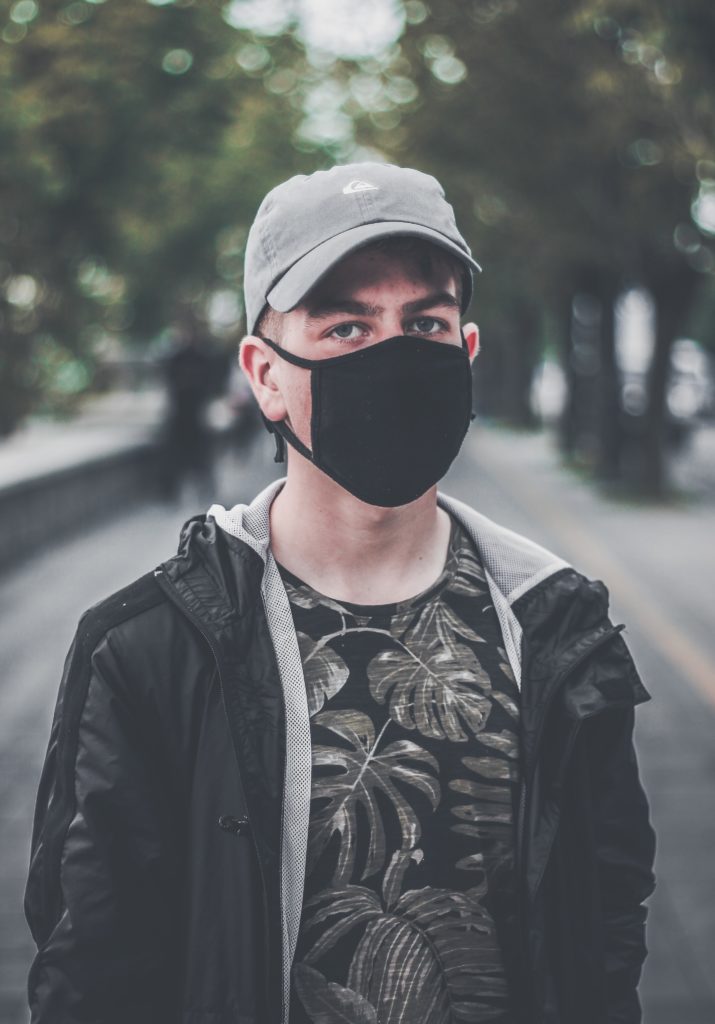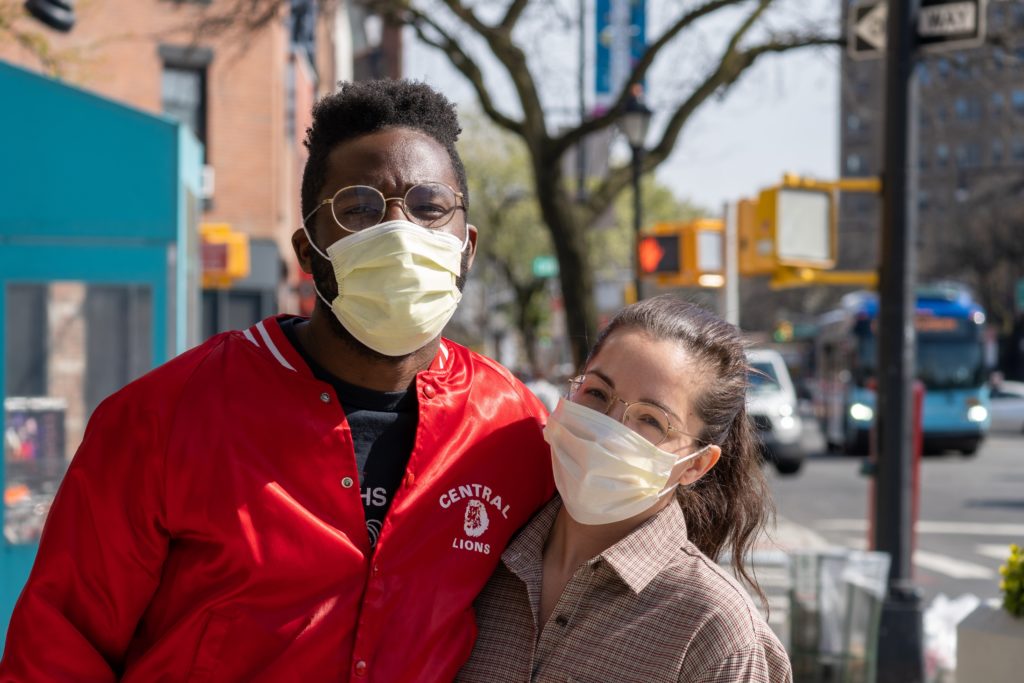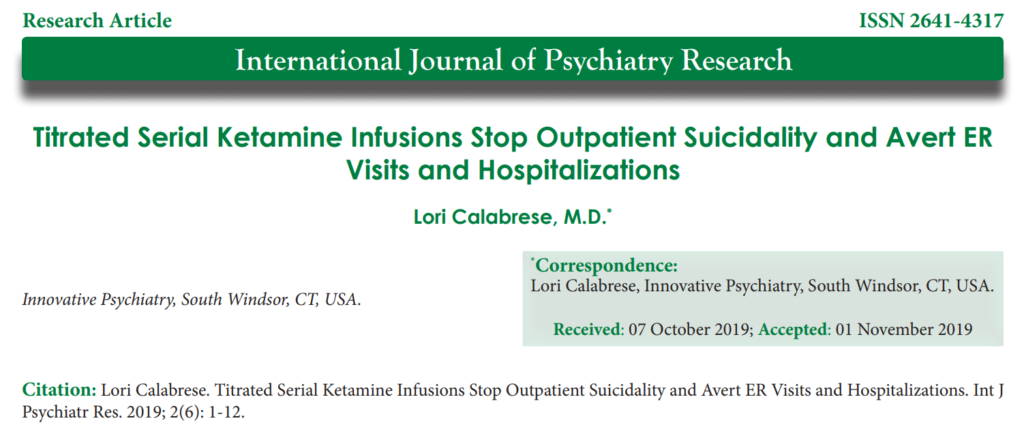School is starting for the 2020-21 school year, whether remotely or on campus.

Never before have these students started a new school year during a pandemic. It’s been over 100 years since the last one, and few of those students are still alive. But these students, yours and mine, are pioneers now. School’s starting, how’s your teen coping with what lies ahead? They’re facing a new school year with social distancing, mask wearing, frequent hand washing… and they’re also facing new subjects, anxiety about whether the pressure will be too much, whether they’re up for the task… and they’re concerned about socializing.
Some have already started. The desks are six feet apart, they’re wearing masks. And they feel uncertain. Shy… afraid they’ll do something wrong. Others are afraid of the long hours at their desks… Because those need movement and stimulation. They’re afraid of consequences.
Some of our students will take whatever changes they face in stride. Those are the adaptable ones. But others won’t.. because change causes them to suffer anxiety.
While, as a parent, you may be eagerly awaiting school to start so you can get those kids back into school, since you may have had them home since March.
But, make sure you’re in tune with them. Listen to their fears and don’t dismiss them. No matter how you feel about what’s happening in the world, your teen may not be equipped to handle the early adjustments of this new experience.
Because here’s the thing… stress, especially long term continuous stress, can lead to circuitry damage in their brain cells…and that damage can result in depression.
Stress Damages. In Fact, It Can Kill.
In a teen, depression doesn’t usually come with a label written across their forehead.
It may look like anger or rebellion. It may look like laziness. It may look like stubbornness.
And symptoms like these are actually depression, PTSD, bipolar depression, substance abuse, social anxiety, suicidal thoughts… and if it is, it may need treatment.

Because these conditions create their own fallout, like poor grades, inappropriate behavior, non-compliance…
Then, without proper and EFFECTIVE treatment, the condition can deteriorate to criminal behavior…or even suicide.
Suicide is the 3rd cause of death among teens.
Did you know?
If your teen talks about wanting to die, listen.
Adolescents are emotional, their hormones rage, and they sometimes seem to be all over the map.
But listen to them with respect.
Because you need to watch… since school’s starting: How’s your teen doing?
Parents of teens who have ended their own lives will be the first to say that dismissing these claims was a mistake. But in retrospect they realized their child had been crying for help for a long time.
Is a “cry for help” really just manipulation?
No…a cry for help is a plea for HELP. And what seems to you to be a solvable, transient struggle – or growing pains – to your teen may seem like the end of the world.
Don’t let it be.
Now, it can get tricky.

If your adolescent has never been diagnosed with a disorder, you may not realize his disorder is escalating. A fellow psychiatrist tells the story of seeing a 14 year-old he’d known since he was born as a family friend.
During the intake evaluation, he finds out the boy has been deeply subdued, without joy, extremely shy, and having difficulty making himself participate in school work. He looks at the parents and asks, Why am I just now hearing about this??
Truth be told, if the boy’s parents had perceived psychiatric care in the same category as dental care, he would have. But, they’d never dealt with a disorder in the family before and didn’t know how to identify it. They tried more structure, more emotional support, more consequences… until one evening they found him in the fetal position in the shadows…and realized they needed help.
Your heart goes out to that fellow.
And it goes out to his parents, too.
Because they loved him and wanted him to be happy. They just didn’t recognize the signs.
What about you?

And what about your teen?
Would you know the signs if your teen displayed the need for help?
Are you sure? His life may depend on it.
So think about this:
Has your son or daughter suffered a severe loss like a crippling humiliation, a lost relationship, or death of someone close…?
What about substances like drugs or alcohol…?
Has he or she been depressed for a long time? Has treatment helped? Because if it hasn’t, it’s the same as no treatment at all.
Has he or she ever been abused physically, emotionally, or verbally? Are you sure?
Does he or she suffer from a dual diagnosis, like bipolar depression and substance use disorder, or depression and anxiety, or PTSD and alcohol use disorder..?
Has there ever been a suicide attempt before?
Has there been an arrest before?
These are all risk factors for potential suicide attempt or completion. Any of these indicate the need for special care.
Further, if your teen talks about death, or feeling rotten inside, or hopeless, or worthless… is withdrawn, sullen, and talks about violence, or wanting to die, reach out for help.
The National Suicide Prevention Lifeline 1-800-273-TALK (8255)

At Innovative Psychiatry, we offer ketamine treatment every week. Specifically, if you’ve tried other antidepressant medication trials for at least a few months each, and have experienced no relief, ketamine treatment can help you achieve remission when other medicines didn’t come close.

And if you endure suicidal thoughts and visuals, ketamine can erase those thoughts in a few short hours…maybe less.
In this era of psychiatric treatment, you just don’t have to endure without treatment… or with treatment that doesn’t work.
So… like I said, school’s starting: How’s your teen doing now?
We treat adolescents and adults, age 14 and up with ketamine treatment when it’s appropriate, and celebrate with our patients as they complete treatment and walk out with the joy of a life of freedom of symptoms.
While ketamine treatment doesn’t affect everyone this way, it does do this for most. And there are other ground breaking treatments you can try if you’re one of those rare people not transformed by ketamine.
Thankfully, we no longer live in the Dark Ages even our grandparents did when it comes to psychiatric care. There is hope now. Wholeness. Remission.
If you struggle with symptoms like we’ve talked about here, call us.
We want to help you glide through the challenges ahead with resilience.

To the restoration of your best self,
